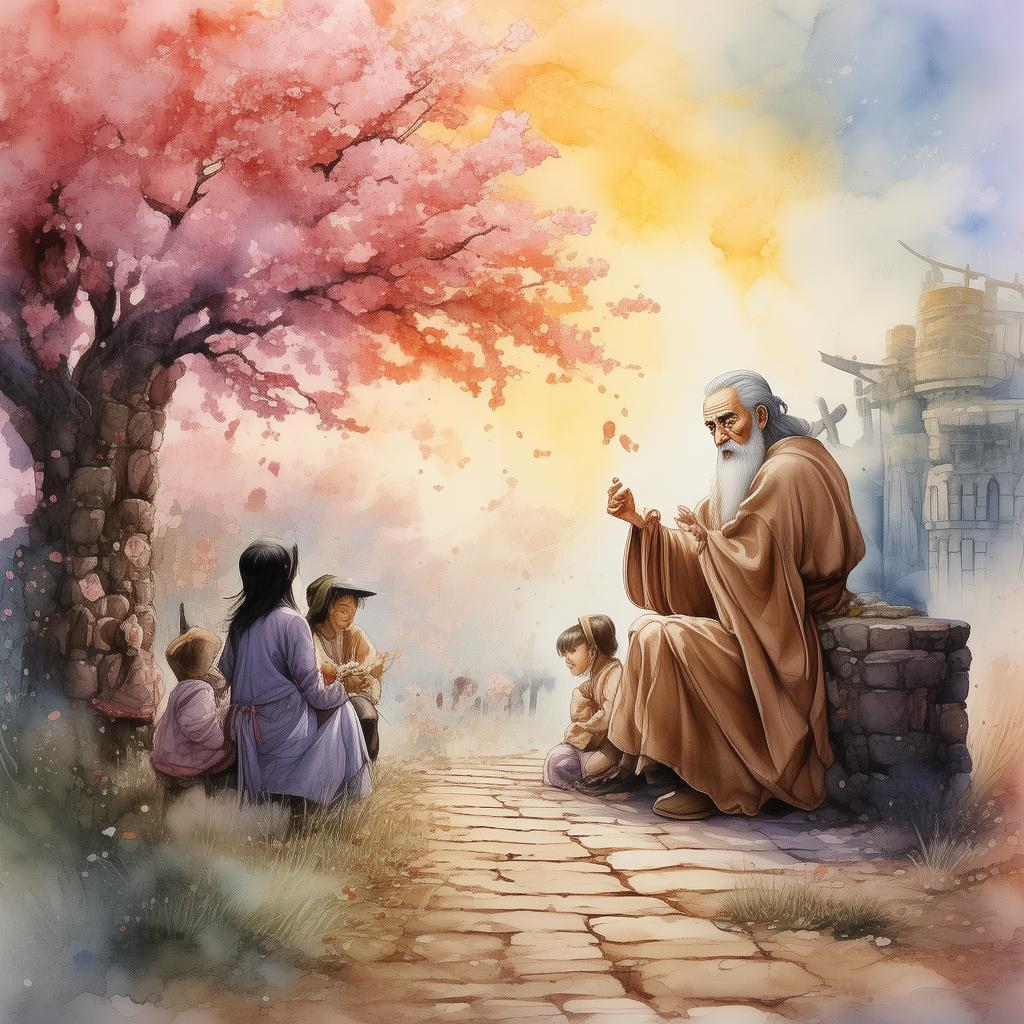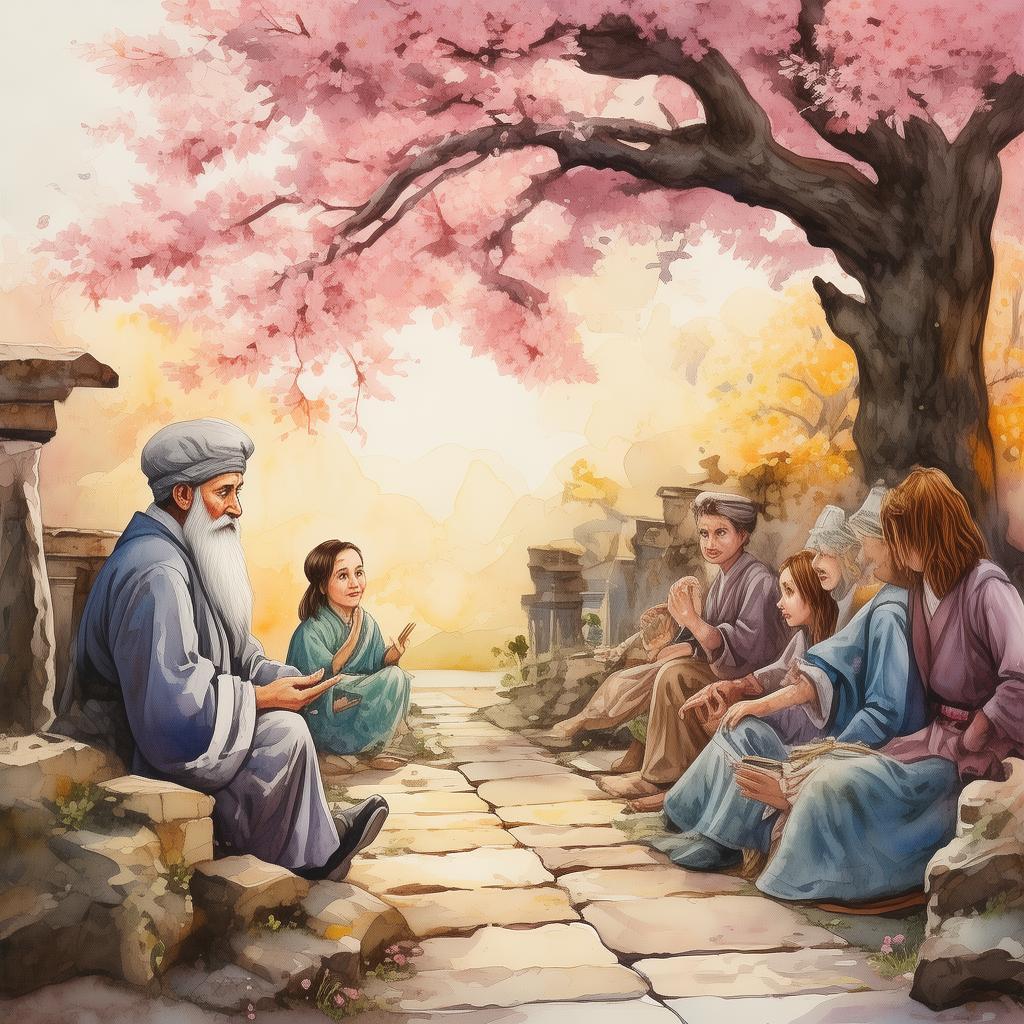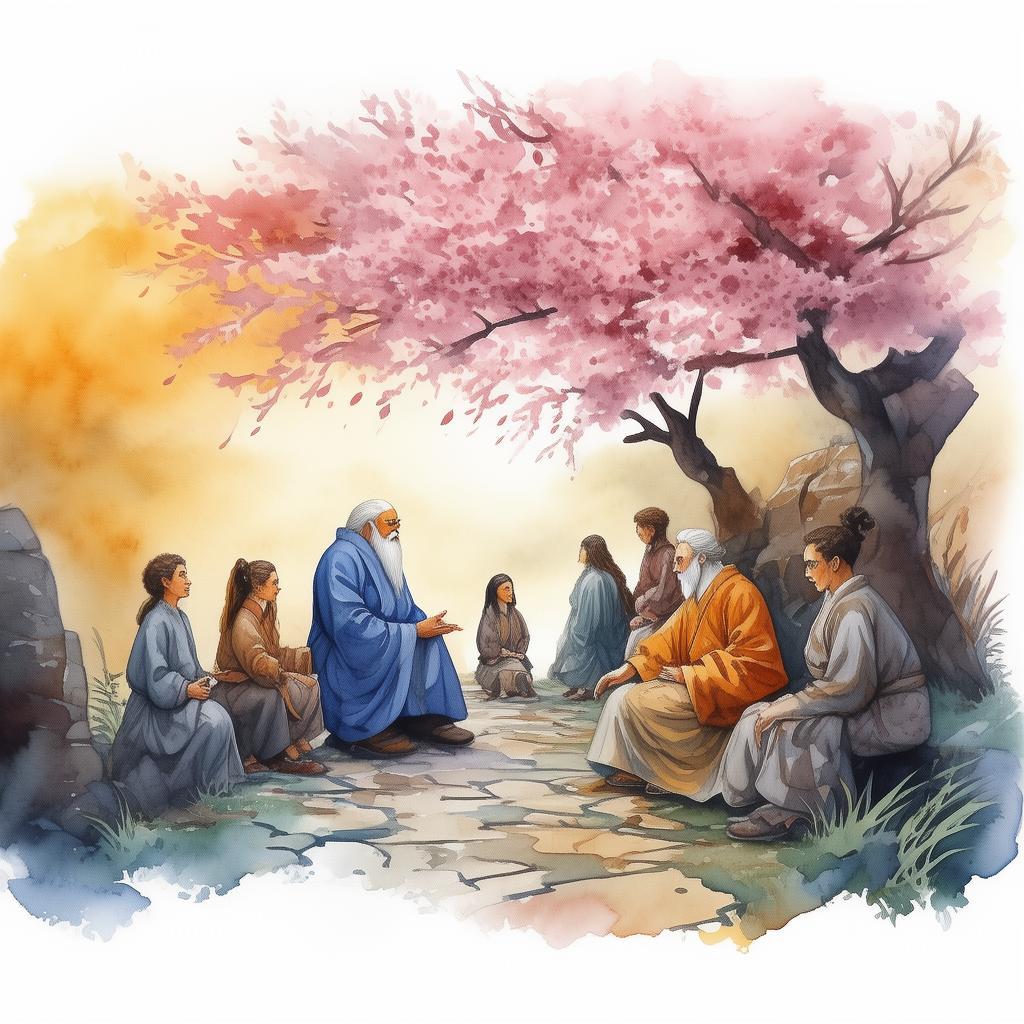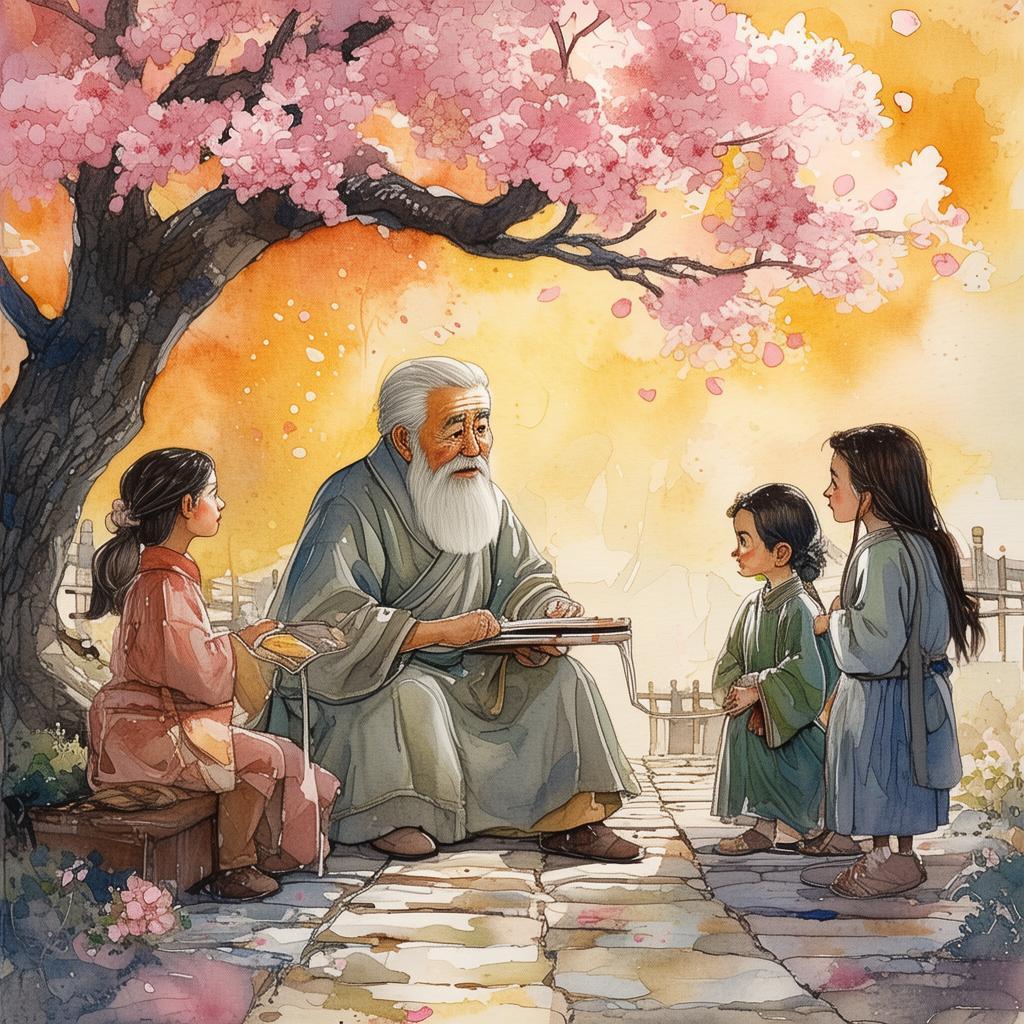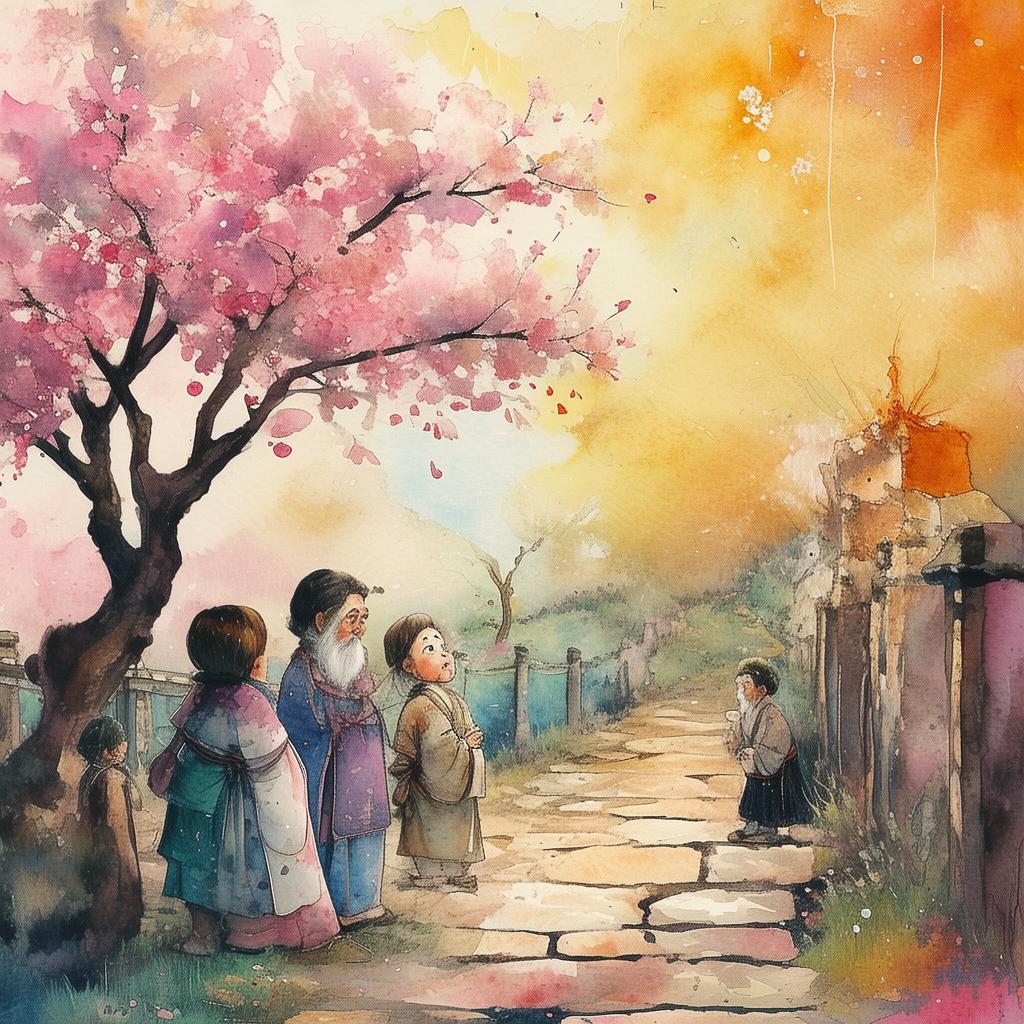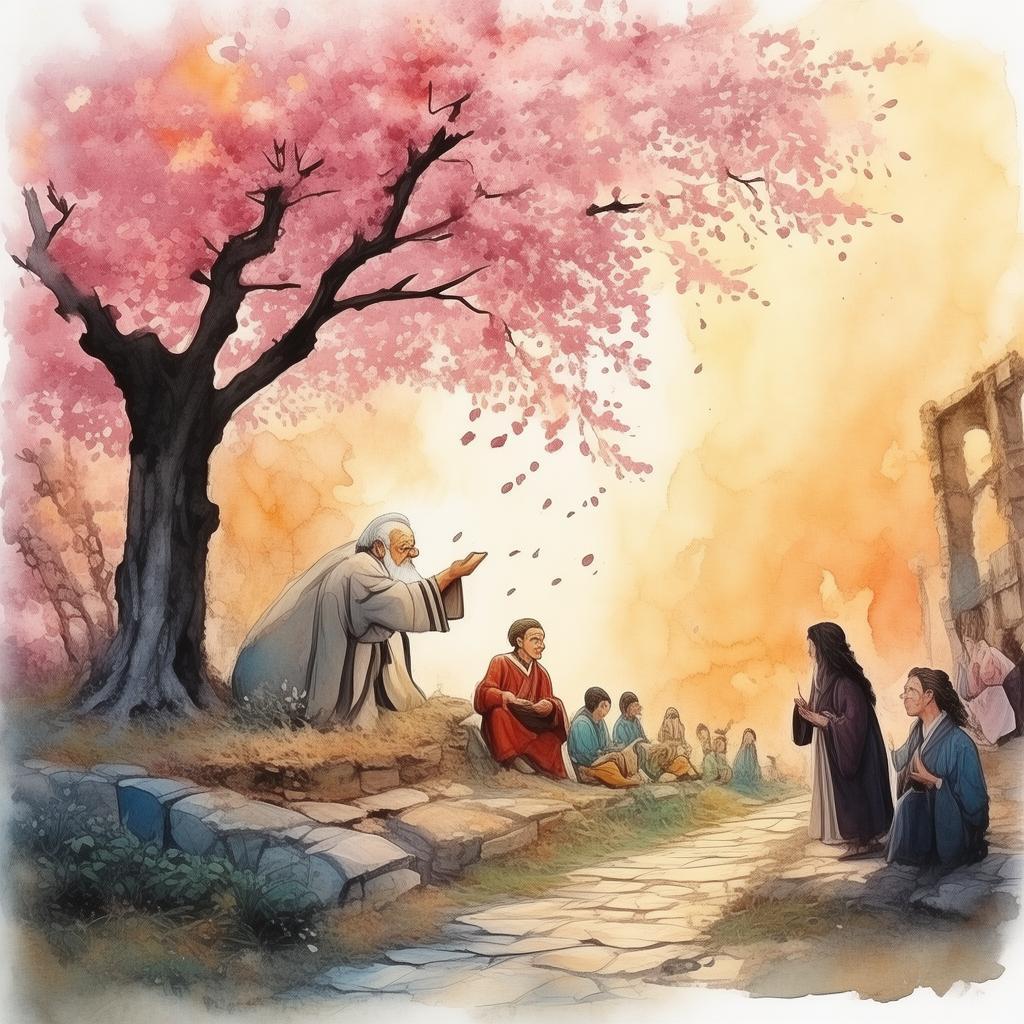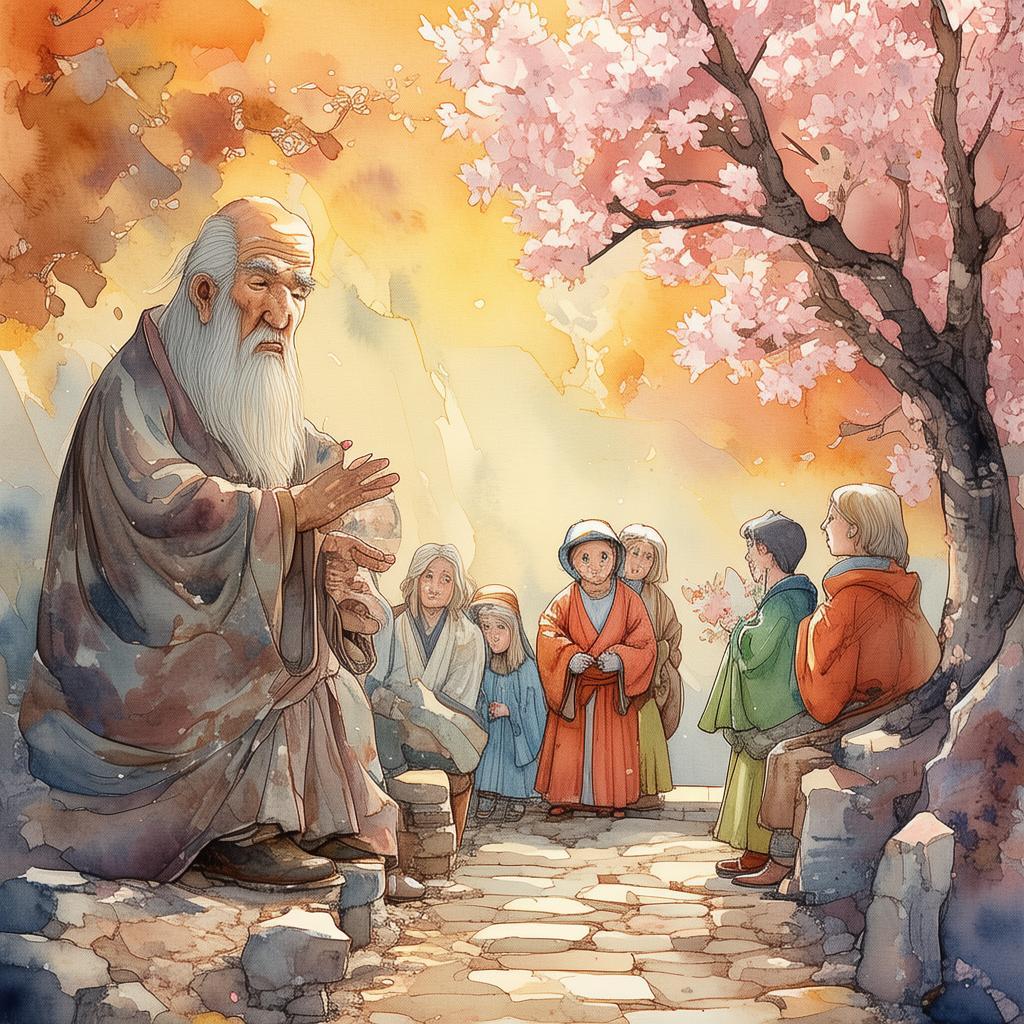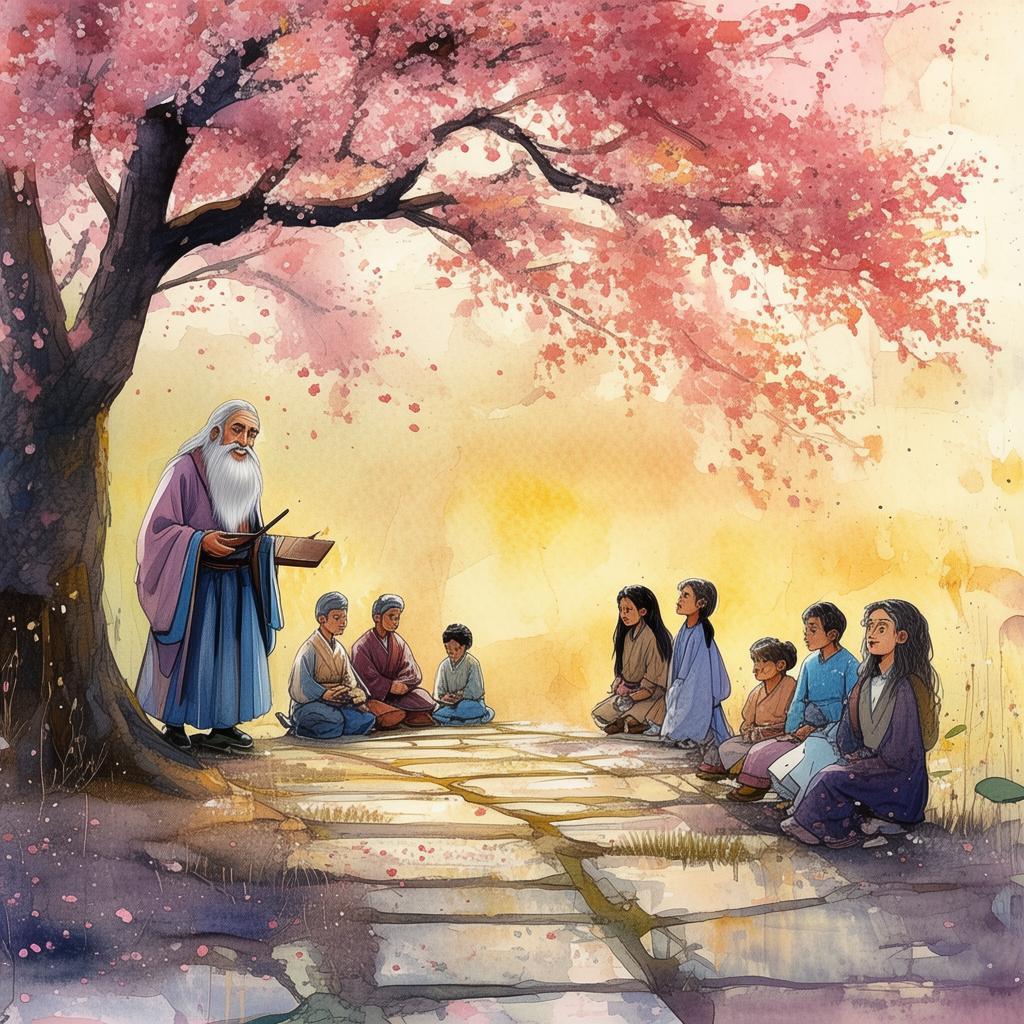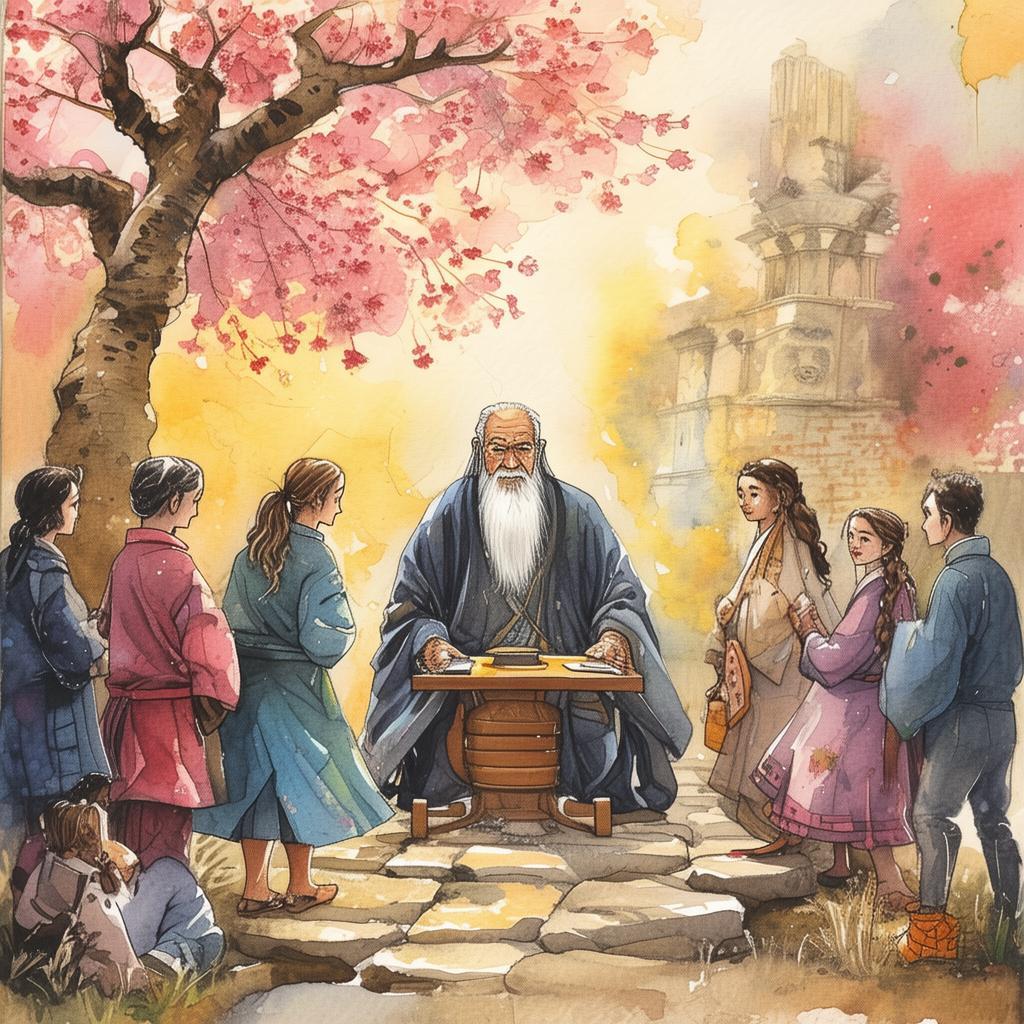The Eye of the Quick: A Flicker of Fate
In the ancient land of Jin, there was a village known for its peculiar customs and hidden talents. Among these talents was the ability to make quick, decisive choices, a skill so rare and sought after that it was revered as a sign of fate itself. The villagers called this skill "The Eye of the Quick."
One such village was Xing'an, where a young man named Ming lived. Ming was known for his quick thinking and swift movements, a trait he attributed to his father, who was a legendary swordsman. However, Ming was no swordsman; his gift lay in making swift decisions, a talent that often brought him out of tight spots.
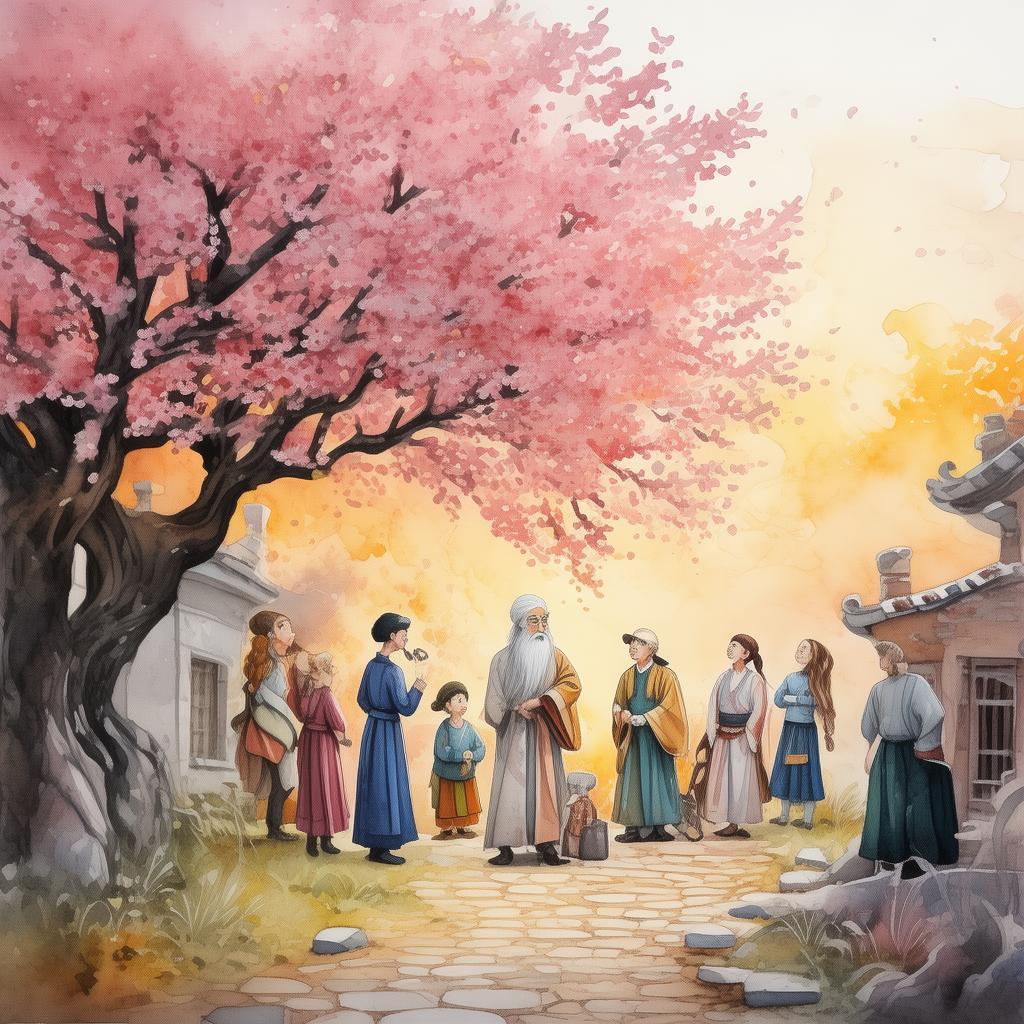
The story began with an annual festival known as the Flicker of Fate. This festival was a contest of the Eye of the Quick, where young men from across the land would come to prove their worth and claim the title of the fastest decision-maker. The winner would be said to have the eye of destiny, and their decision would be as infallible as fate itself.
As the festival approached, the village elders gathered in the central square, their eyes reflecting the weight of tradition. Ming, despite his youth, felt a surge of excitement. He had always dreamed of proving his worth in the contest, but something about this year's event felt different.
On the eve of the festival, a mysterious figure approached Ming. Dressed in black, the figure wore a blindfold and spoke in a voice that echoed with ancient wisdom. "Ming, the Eye of the Quick is not about speed or talent, but about the courage to see through the blindfold of fate. Your true destiny awaits, but you must first prove your worth."
Ming, intrigued and a little fearful, accepted the challenge. The next morning, as the sun rose over Xing'an, the festival commenced. The contestants, all of them young and eager, were blindfolded and led to the central arena. The rules were simple: make the fastest decision based on the challenge presented, and the winner would be the one whose decision was as true as fate.
The first challenge was a simple one: to choose the heavier of two identical-looking stones. Ming, with his usual quickness, picked the heavier stone. The crowd cheered, and he felt a rush of pride. But the second challenge was far more complex.
A series of puzzles were presented, each requiring a quick and accurate decision. Ming excelled, but as the challenges grew more intricate, so did the risks. The third challenge was a riddle: "A man walks into a room with a candle, a match, and a bucket of water. He is to light the candle without using the match. How does he do it?"
Ming's mind raced, but the answer seemed elusive. As he pondered, the crowd grew restless. The time limit approached, and Ming's heart pounded. In that moment, the figure in black reappeared, standing silently behind Ming. "You must trust in your instinct," the figure whispered, and Ming felt a strange calm wash over him.
He answered, "He lights the candle from the flame of the bucket of water, as the water acts as a magnifying glass."
The crowd gasped, and the figure nodded. Ming had won the challenge, but the real test was yet to come.
The final challenge was the most perilous of all. Ming was to face a blindfolded opponent in a one-on-one contest of quick decisions. The loser would be stripped of their sight for a week, a harsh penalty indeed.
As the contest began, Ming felt the weight of the blindfold. He had to rely solely on his instincts, his heart, and the wisdom of fate. The opponent moved swiftly, and Ming followed with equal agility. They exchanged quick decisions, each one a battle of wits and will.
Finally, the contest reached its climax. Ming, with a final, desperate move, chose the correct answer in a split-second decision. The crowd erupted, and the figure in black approached Ming once more.
"Ming," the figure said, "your decision was true, and now you have the eye of the quick. Your destiny is to use this gift wisely and to guide those in need."
Ming, still reeling from the events, realized the magnitude of his achievement. He had not only won the contest but had also discovered the true meaning of the Eye of the Quick: it was not about speed or talent, but about the courage to see through the blindfold of fate and make the right decision, no matter the cost.
The Eye of the Quick: A Flicker of Fate was a story that would be told for generations, a tale of courage, fate, and the power of quick, decisive action. Ming had proven that sometimes, the fastest way to victory was to trust in the heart's wisdom and let fate guide the way.
✨ Original Statement ✨
All articles published on this website (including but not limited to text, images, videos, and other content) are original or authorized for reposting and are protected by relevant laws. Without the explicit written permission of this website, no individual or organization may copy, modify, repost, or use the content for commercial purposes.
If you need to quote or cooperate, please contact this site for authorization. We reserve the right to pursue legal responsibility for any unauthorized use.
Hereby declared.
